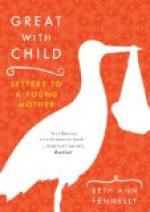It is on the same mistaken principle that many adults go thinly clad, late in the fall. I have seen men in November and December beating and rubbing their hands, who, on being asked why they did not wear mittens, replied, that if they should wear one pair of mittens so early in the season, they should want two in the winter.
Now I cheerfully admit that to put on additional clothing before the severity of the weather demands it, actually produces the effect here supposed; but to endure severe cold, on the contrary, never hardens anybody. Nay, more, it enfeebles. Cold, when combined with the evils of poverty, produces more mischief and destroys more lives than any one disease in the whole catalogue of human maladies.
Adam Smith says that it is not uncommon for mothers in the Highlands of Scotland, who have borne twenty children, to have only two of them alive.
It may be difficult to say whether children are oftener destroyed by over-tenderness than by neglect, and the evils incident to poverty. Both extremes are common; while the happy medium—that of conducting a child’s education upon the principles of physiology, is rarely known, and still more rarely followed.
I have been much amused, and not a little instructed, by the following anecdote on this point, from Dr. Dewees:
We were speaking with a lady who had lost three or four children with “croup,” who informed us she was convinced, from absolute experiment, that there was nothing like exposure to all kinds of weather to protect and harden the system. By her first plan of managing her children, which was by keeping them very warmly clad, she said she lost several by the croup; but since she had adopted the opposite scheme, her children had been perfectly healthy, and never had betrayed the slightest disposition to that terrible disease which had robbed her of her children.
Perhaps, madam, we observed, you did not, in making your first experiments, attend to a number of details which might be thought essential to the plan. You did not probably take the proper precautions when you sent them into the cold air, or observe what was important for them when they returned from it.
“Oh, yes,” she replied, “I took every possible care when they, were going out. I always made them wear a very warm great coat, well lined with baize, and a fur cape or collar. I always made them wear a ‘comfortable’ round their necks, made of soft woollen yarn. And as for their feet, they were always protected by socks or over-shoes lined with wool or fur, as the weather might be wet or dry.”
Do you believe, madam, they were kept at a proper degree of warmth by these means?
“Oh, certainly. Indeed, rather too warm; for they would often be in a state of perspiration, they told me, when in the open air; especially if they ran, slid, or skated.”
And what was done when they were thus heated?




